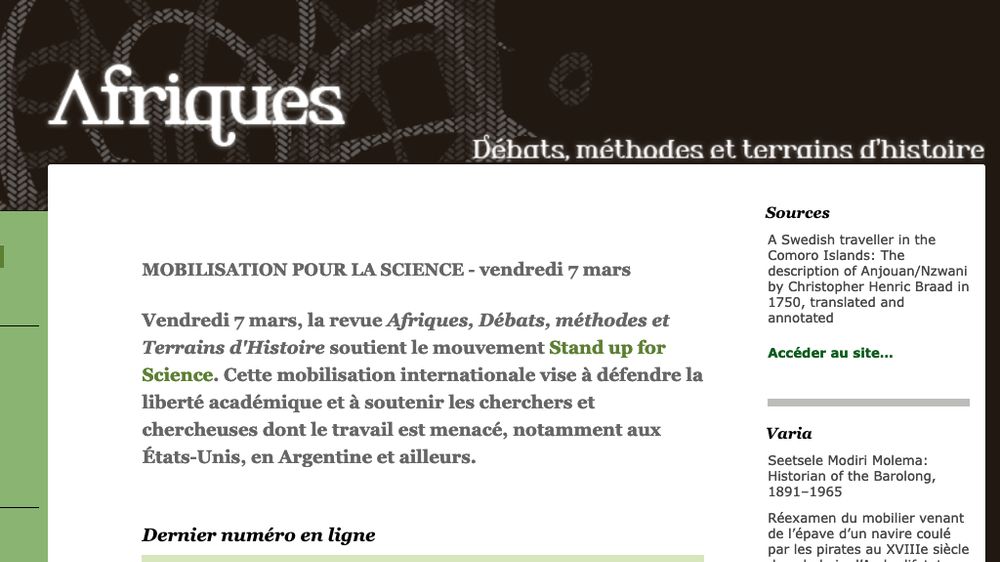
journals.openedition.org/afriques/
afriques.hypotheses.org/





Charles de La Roncière (1925) and Raymond Mauny (1950) consider that Villault de Bellefond wrote in order to support Colbert's colonial project in Africa and labelled his narration a legend.

Charles de La Roncière (1925) and Raymond Mauny (1950) consider that Villault de Bellefond wrote in order to support Colbert's colonial project in Africa and labelled his narration a legend.


It also sheds new light on the settlement process in the interior of the mountain chain.


It also sheds new light on the settlement process in the interior of the mountain chain.

#manuscript, #SwahiliCoast, #diplomacy, #slavetrade, #Oman, #Kilwa, #France, #AfricanHistory

#manuscript, #SwahiliCoast, #diplomacy, #slavetrade, #Oman, #Kilwa, #France, #AfricanHistory



Toutes les infos sur le compte
@standupforscience.bsky.social
et sur le site standupforscience.fr

Toutes les infos sur le compte
@standupforscience.bsky.social
et sur le site standupforscience.fr



#Tuaregs #KelTamasheq

#Tuaregs #KelTamasheq

In the 14th c., West Africa presented a stable political landscape comprised of large sultanates. However, the Sahara is still seen as an area lacking political organizations, and the nomadic powers are not considered as legitimate authorities over their own territories.

In the 14th c., West Africa presented a stable political landscape comprised of large sultanates. However, the Sahara is still seen as an area lacking political organizations, and the nomadic powers are not considered as legitimate authorities over their own territories.


